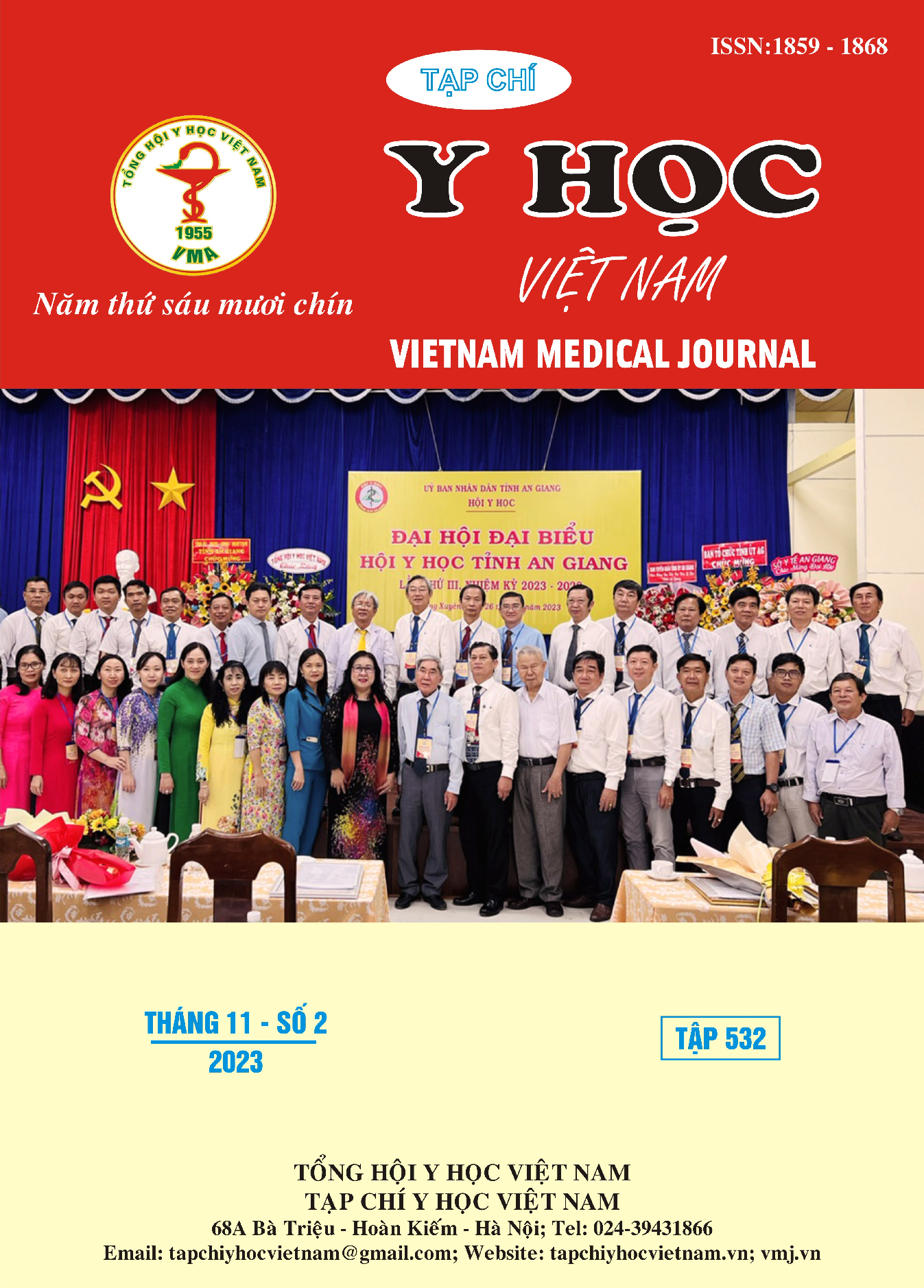RESEARCH CHARACTERISTICS AND SOME FACTORS RELATED TO DEPRESSION IN POSTPARTUM WOMEN IN CITY HANOI IN 2022
Main Article Content
Abstract
Depression is a common mental disorder in postpartum women, greatly affecting the health of mothers and children. Objective: Describe the
prevalence of depression and some related factors in postpartum women in Hanoi city. Subjects and research methods: Cross-sectional description on 1086 postpartum women from 4-12 weeks in 10 districts of Hanoi city. Results: 16,85% of women had postpartum depression. The main manifestations of postpartum depression are: Feeling of boredom (28,45%). Feeling bored in doing everything (23,94%); Working easily tired (35,91%); Sleep disturbances (41,99%). Factors: first pregnancy under 20 years old (OR=1.89); Gestational age at birth less than 37 weeks (OR=2.56); Unemployment, housework (OR=3.07); Mentally abusive husband (OR=3.51) are factors related to postpartum depression. Conclusions: These findings highlight the need to screen for postpartum depression and risk factors in settings where care is available to improve maternal and child health.
Article Details
Keywords
Postpartum depression; mothers; related factors; family support.
References
2. O’Hara M.W. and Swain A.M. (1996). Rates and risk of postpartum depression: a metaanalysis. Int Rev Psychiatry, 8(1), 37.
3. Grote N.K., Bridge J.A., Gavin A.R., et al. (2010). A meta-analysis of depression during pregnancy and the risk of preterm birth, low birth weight, and intrauterine growth restriction. Arch Gen Psychiatry, 67(10), 1012–24.
4. Nhi Tran Tho, Hanh Nguyen Thi Thuy, Toan Ngo Van, Vibeke Rasch Dan W.Meyrowitsch, Tine Gammeltoft, Hinh Nguyen Duc (2016). Intimate partner violence and depression among pregnant women in Dong Anh district, Hanoi city. Vietnam Journal of Medicine and Pharmacy, 12 (3), 49-57.
5. Fisher J.R.W., Morrow M.M., Nhu Ngoc N.T., et al. (2004). Prevalence, nature, severity and correlates of postpartum depressive symptoms in Vietnam. BJOG Int J Obstet Gynaecol, 111(12), 1353–1360.
6. Nguyễn Thị Huyền (2014). Nghiên cứu đặc điểm lâm sàng rối loạn trầm cảm sau sinh. Luận án chuyên khoa cấp II. Trường Đại học Y Hà Nội.
7. Mayberry L.J., Horowitz J.A., and Declercq E. (2007). Depression Symptom Prevalence and Demographic Risk Factors Among U.S. Women During the First 2 Years Postpartum. J Obstet Gynecol Neonatal Nurs, 36(6), 542–549.
8. Hendrick V. (2006). General Considerations in Treating Psychiatric Disorders During Pregnancy and Following Delivery. Psychiatric Disorders in Pregnancy and the Postpartum. Humana Press, 1–12.
9. Rodriguez M., Heilemann M., Fielder E., et al. (2008). Intimate partner violence,depression, and PTSD among pregnant Latina women. Ann Fam Med, 6(1), 44–52.
10. Lê Quốc Nam (2012). Rối loạn trầm cảm sau sinh ở các sản phụ tại bệnh viện Tù Dũ. Tạp chí Y học TP Hồ Chí Minh, 12(3), 100-107.


